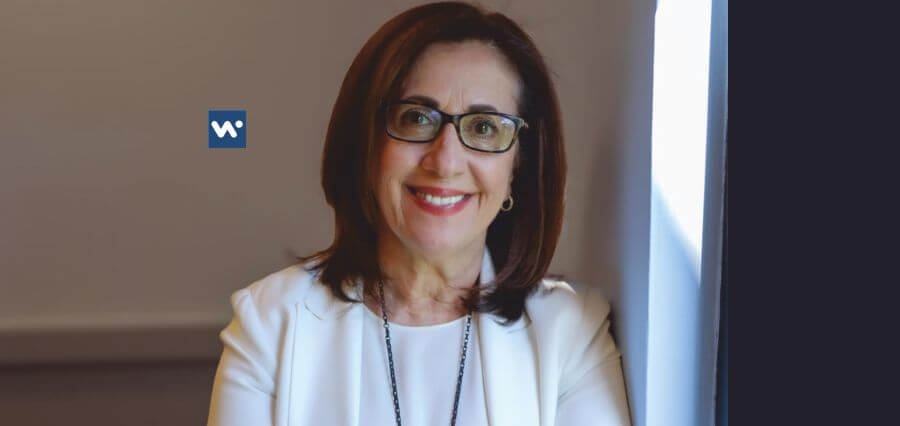Educational assessment is used to evaluate the knowledge, skills and competencies of individuals and populations and inform decisions. It plays a vital role in understanding what learners know and can do—and in shaping decisions that affect educational futures around the world. Today, the field is undergoing a profound transformation driven by artificial intelligence (AI) and data analytics, which are redefining how assessments are designed and delivered, opening new possibilities for making education more equitable, responsive and meaningful.
Leading this transformation is Educational Testing Service (ETS), a global education and talent solutions organization founded in 1947 and headquartered in Princeton, New Jersey, USA. ETS’s research arm, the ETS Research Institute, is dedicated to advancing the science of measurement to power human progress. Under the leadership of Kadriye Ercikan, the ETS Research Institute is leveraging AI to develop frameworks for innovative assessments designed to enhance learning, minimize bias and deliver richer, more meaningful insights for learners, policy makers and institutions.
This feature explores Kadriye’s professional journey, her approach to leadership and how she and her team at ETS are reimagining assessment as a driver of human progress.
Kadriye Ercikan: A champion of assessment innovation
A recognized leader in the field, Kadriye Ercikan Ph.D., Senior Vice President of Global Research, ETS has dedicated her career to advancing quality and fairness in educational assessments. As the senior vice president of global research at ETS, she believes that assessments should provide accurate and meaningful insights to learners and decision makers and pave the way for improvement and progress.
Kadriye Ercikan’s journey in educational assessment began at Stanford University, where she was inspired by the technological advancements and problem-solving mindset that defined the campus in the 1980s. Before arriving at ETS, her passion for well-designed assessments led her to leadership roles at CTB/McGraw-Hill and the University of British Columbia (UBC). These experiences continue to shape her approach to creating rigorous, precise assessments that reflect real-world learning conditions. Kadriye believes that education has the power to change lives. Through her work, she is driving a vision where AI-powered assessments are ethical, valid and reflective of real-world challenges.
Her leadership style is grounded in empathy, decisiveness and authenticity. She draws inspiration from the strong women in her life, from her grandmothers to her daughters, who have demonstrated resilience and the power of collaboration. Her core values—integrity, fairness and curiosity—guide her efforts to create meaningful change. As an accomplished scholar and an executive, Kadriye Ercikan has three pieces of advice for aspiring scientists:
- Be your own champion.
- Surround yourself with mentors who uplift and challenge you.
- Embrace difficult tasks as opportunities for growth. No matter what comes your way, stay committed to creating a meaningful impact.
Championing Innovation and Responsible Use of AI in Assessments
One of the biggest challenges in utilizing AI in assessment is ensuring it is used responsibly. To address this issue, ETS Research Institute’s scientists, under Kadriye’s leadership, developed ethical guidelines—Responsible Use of AI in Assessment: ETS Principles—to help educational organizations apply AI in ways that are both effective and fair. This work outlines ETS’s vision for ethical design, transparency and continuous oversight of AI systems in testing contexts. Specifically, it:
- Suggests practices for mitigating algorithmic bias and embedding fairness directly into system architecture
- Lays out requirements for transparency and explainability so AI decisions can be understood and interrogated
- Establishes strong privacy and security safeguards to protect student data throughout the AI lifecycle
- Connects AI applications to educational values like access, personalization and equity
- Introduces a framework for ongoing evaluation and refinement of AI tools in real-world assessment environments
Understanding AI is becoming a foundational part of digital literacy, essential for navigating school, work and daily life. Addressing this need, ETS’ scientists developed Measuring Digital Literacies in the Age of AI – a framework which presents a new approach to assessing how students engage with AI in digitally rich contexts. Instead of treating AI literacy as a separate skill, the framework embeds it into everyday digital inquiry processes—such as searching for information, analyzing sources and synthesizing ideas. This proposed framework:
- Identifies three key areas of AI literacy: using and applying AI, recognizing and evaluating AI content and navigating AI ethically
- Integrates these skills into real-world learning tasks to reflect how students actually interact with AI tools
- Highlights risks like biased frameworks, scoring inconsistencies and lack of global adaptability
- Encourages equity by accounting for differences in access, cultural perspectives and technological fluency
- Supports educators in evaluating not just final outputs but how students reason, reflect and respond to AI-generated content
ETS has embraced digital transformation by embracing a hybrid approach where the use of AI is carefully monitored by human experts.
One example is the Human in the Loop report, co- authored by Kadriye Ercikan, which introduces a new human-centered AI framework for large-scale digital assessments. The framework:
- Combines traditional performance scores with process data, such as task navigation patterns, time on task and tool usage
- Generates student “engagement profiles” that reveal cognitive strategies, time management and affective states
- Provides educators with actionable insights to explain why a student performed at a certain level—not just what they scored
- Applies AI to amplify, not replace, human expertise in interpreting student learning behaviors
- Demonstrates that this level of insight—previously only achievable in small-scale classroom settings—can now be extracted from large-scale digital assessments such as the Programme for International Student Assessment (PISA) and the National Assessment of Educational Progress (NAEP)
Developing the new generation of assessments
ETS has embraced digital transformation by leveraging technology to create interactive, performance-based assessments that capture a more comprehensive picture of skills, competencies and attributes. These innovative assessments are grounded in real-world applications, making assessments more relevant and engaging.
Kadriye Ercikan is leading ETS’s efforts to design scientific frameworks for assessments that reflect how students learn and apply knowledge in today’s digital world. As she explains in her LinkedIn article “Optimizing Technological Advances in Assessing What Matters,” “We live in an exciting time when rapid technological advances allow us to combine insights from digital learning environments and innovative digital assessments of important learning outcomes.” At ETS, these advances are powered by responsible use of AI, always guided by the principles of fairness and validity.
To shape the next generation of assessments, ETS researchers are exploring AI-enabled design principles, capabilities and methods that make digital assessments more meaningful and equitable. Their goal is to deliver valid and fair insights by building flexible tools that can adapt to the evolving needs of learners, educators and systems.
The work focuses on several core priorities:
Making simulation-based assessments more cost-efficient with generative AI. ETS researchers are applying generative AI to streamline the creation of innovative, simulation- based tasks. These prototypes are designed to be scalable and affordable, expanding access to high-quality assessments that mirror real-world challenges.
Designing tasks that generate interpretable process data for AI-based scoring. New task design principles are being developed to optimize the collection of process data—such as how a learner navigates through a task—enabling more sophisticated, AI-supported automated scoring that goes beyond correct/incorrect outcomes.
Pushing forward “testless” assessments. ETS is developing methodologies and prototypes for assessments that do not rely on traditional test formats. These include embedded tools—“detectors” placed in naturalistic learning environments—that collect data continuously and passively, enabling real-time insights into learner progress.
Embedding new tools that can collect data on how students interact, reason and perform—data that can then be aggregated and used as evidence to support claims about what students know and can do.
Using AI to assess complex skills through process indicators. Researchers are building AI-based methodologies and tools to assess high-value competencies—such as collaboration, coding, statistical reasoning and engineering design—by analyzing not just outcomes but the learning process itself.
The long-term vision is clear: a future where AI supports assessments that are embedded directly into learning, capturing performance in real time and helping educators respond to learners’ needs with greater precision. This work is more than technological innovation—it’s about using AI to make assessment more human. By centering learner needs and applying AI responsibly, ETS is shaping a new generation of tools that help students thrive and educators teach with confidence.
Shaping the future of assessment—and expanding opportunity for all learners
Kadriye Ercikan leads with clarity, integrity and a deep belief in the power of education to change lives. Her work bridges scientific rigor with a strong sense of purpose—ensuring that innovation in assessment is always grounded in fairness, transparency and relevance. Through her leadership at ETS Research Institute, she is helping define how the next generation of assessments will support learners, educators and institutions in a rapidly changing world. From guiding the development of ethical AI guidelines to overseeing research on how students engage with digital tasks, Kadriye is shaping the future of assessment—to ensure it opens doors and expands opportunity for every learner.




